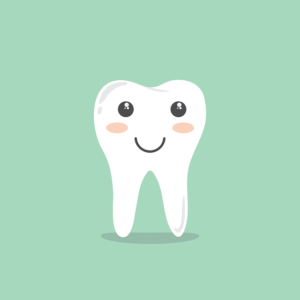Periodontal Maintenance

Have you ever heard about periodontal maintenance? Maybe you heard a hygienist mention it before, but have no clue what it is. Unfortunately, not many people know how important periodontal maintenance is. Although it may seem similar to a routine cleaning, it has its differences, each of which are important to the upkeep of those pearly whites. In fact, roughly 47.2% of adults living in the United States over the age of 30 have some sort of periodontal disease or disruption within their periodontal condition.
The first step to ensuring good oral health is knowledge. Today, you’ll learn all about what periodontal maintenance is by first gaining an understanding of what periodontal diseases are. You’ll read about the different causes of periodontal diseases as well as how best to prevent those diseases from occurring. We’ll clue you into a good periodontal maintenance routine as well as what to do if you suspect you have periodontal diseases.
What Are Periodontal Diseases?
There are two main types of periodontal diseases. In this section, you’ll learn about what each disease is, different signs of each, and when it may be time to visit Dr. Mehta.
Gingivitis and Its Symptoms
Gingivitis is where periodontal disease starts. It’s the most mild form of periodontal disease, and is characterized by redness and irritation around your gingiva, or gums that sit around the base of your teeth. Some people may start to see their gum line recede, too. While it may just seem easy to dismiss these early warning signs, they should be taken seriously. Untreated gingivitis develops into periodontitis and can cause a slew of other problems.
Here are some of the most common signs of gingivitis:
- Bleeding easily when flossing or brushing
- Smelly
- Inflammation in the gums
- Dark red gums
- A gap between your teeth and gum line
Periodontitis and Its Symptoms
Periodontitis occurs when gingivitis is left untreated. Periodontitis is a more serious condition that involves damage to the soft tissue around your teeth. The gaps that form makes it easy for bacteria to sit and develop more, which gets dangerous if patients don’t get immediate treatment. This harmful bacteria can eat away at the bone supporting your teeth and is even responsible for bone loss or infection if left for too long. Periodontitis requires deep cleanings and may even require a more extensive treatment like periodontal maintenance therapy, scaling and root planing, and others.
The signs of periodontitis are similar to the signs of gingivitis, with some being more serious.
Here are the most common signs of periodontitis:
- Inflammation in the gums
- Dark red gums
- Easily bleeding after brushing
- Bad breath that doesn’t seem to go away
- Gaps between where your gums and bone meet
- Loose teeth
- Painful chewing
- A different bite structure when you place your teeth together
- Black triangles of space between your teeth
If you notice one or more of these signs the next time you’re brushing or flossing, don’t panic! Dr. Mehta and the rest of the caring dental assistants at Chicago Loop Dentistry are here to help with no judgment. It’s best to call Dr. Mehta and schedule an appointment right away so she can assess the current condition of your mouth and get a personalized treatment plan started.
Even if you can’t tell whether or not you’re showing signs of periodontal diseases, it’s still best to give Dr. Mehta a call. It’s better to be safe than sorry!
Common Causes of Periodontal Diseases
There are many common causes and factors that increase one’s risk of getting periodontal diseases, which you’ll read about in this section.
Smoking
Smoking is the biggest cause of gum disease and can be attributed to many other problems too. Not only does smoking lower your body’s ability to fight infections and raises the possibility of heart disease, it poses a high risk for tooth decay, gum disease, and tooth loss. In fact, people who smoke are up to three times more likely to lose all of their teeth than people who don’t smoke. Additionally, 43% of people 65 years of age and older reported losing all of their teeth due to smoking, according to the CDC.
Once you sustain bone loss, you never get it back. Dr. Mehta recommends doing everything you can now to prevent gum disease and any other problems, including stopping smoking.

Excessive Drinking
It’s completely normal to enjoy a beer or glass of wine at the end of a long day of work. Consuming alcohol in moderation isn’t bad. However, going over the daily recommended amount of alcohol numerous times a week or daily leaves a higher risk for developing serious complications.
One of those complications as a result of excessive drinking is gingivitis or periodontitis. Why is this, you ask? According to research performed by senior researcher of NYU Langone Health in New York City Jiyoung Ahn, consuming copious amounts of alcohol changes the bacteria makeup of our mouths. Human mouths have good as well as bad germs and when that balance becomes disrupted, the bad can overwhelm our bacterial makeup and cause disease.
Diabetes, Genetics, and Autoimmune Diseases
Diabetes, whether genetic or developed later in life, is another cause of periodontal diseases. People who have this condition may experience an increase of glucose in their saliva. Too much glucose in saliva leads to bacterial growth and eventually tartar buildup along the gum line. If this is left unmonitored or untreated, too much buildup leads to gingivitis.
Individuals who have type 1 or type 2 should always listen to their specialists about best practices for preventing gum disease and other conditions. Although it may be difficult to manage, it prevents you from getting invasive treatments to solve the problem.
Another risk factor of developing periodontal diseases are genetic conditions.
There are many different genetic factors that contribute to that risk factor, including:
- Ehlers-Danlos Syndrome
- Papillon-Lefèvre Syndrome
- Marfan Syndrome
- Down Syndrome
- Certain genetic mutations
- Cyclic neutropenia
If you’re born with or later diagnosed with any of these conditions, it’s best to inform Dr. Mehta as soon as you can so she can keep a close watch on you when you come in for your regular cleaning.
Certain autoimmune diseases like AIDS, Lupus, and Crohn’s disease can also cause individuals to develop periodontal diseases. There are a few different reasons for this happening. Some autoimmune diseases themselves seriously suppress the immune system, which puts individuals at a higher risk for bad buildup.
Additionally, some treatment or medication that people with autoimmune diseases have also weaken the immune system. This puts those individuals higher on the risk scale for getting that bad bacterial buildup. If left untreated, the germs can eat away at your teeth’s bone.
If you know you have an autoimmune disease that puts you at risk for these factors we’ve talked about, let Dr. Mehta know! She’ll make a special note and ensure you’re checked out and good to go during your routine cleanings.
Poor Oral Hygiene
As you may have been able to guess, one of the biggest causes of any gum disease or other problem is due to poor oral hygiene habits. Whether individuals don’t brush twice a day, forget to floss, or do neither activity, plaque and tartar will build up over time and further push your gums away. At that point, bacteria will house itself in all those gaps. The longer germs stay in those gaps, the bigger the chance that one has developing a periodontal disease.
Hormonal Changes and Stress
Hormonal changes that girls, young women, and older women experience can also be a risk factor for developing periodontal diseases. The female hormones estrogen and progesterone cause greater blood flow to your gums, which can be a reason why they’re more sensitive or bleed easier. These hormones, which are present at all different stages of female life (including monthly menstruation, pregnancy, and menopause), can also cause the gum line to be inflamed.
Inflamed and sensitive gums make it easier to separate from the tooth if left untreated for too long. That’s why it’s especially important for women to have excellent oral hygiene habits.
Everyone experiences stress at one point or another. Whether good or bad, it’s a part of life that everyone has to deal with. Stress you experience for a prolonged period of time isn’t healthy for you.
When the human body experiences too much stress for a long time, your immune system is downregulated and certain hormones like cortisol last in your system longer. Both of these make it difficult for your body to fight infection and control things such as bacterial buildup.
Even while you’re stressed, it’s a good idea to practice good oral hygiene to keep that nasty germ buildup away for good.
Teeth Grinding
Excessive teeth grinding can also put you at a higher risk for developing periodontal diseases. Grinding your teeth can wear them down, lower your immune system, and even be responsible for shifts in your mouth structure. Although little shifts aren’t inherently horrible, the gaps created by those shifts leave a wide open place for germs to breed and fester.
How to Prevent Periodontal Diseases Through Periodontal Maintenance
Now that you know all about different periodontal diseases and risk factors for developing them, it’s time you understand how to prevent these diseases. Proper prevention lets you live a long, healthy life. It also makes Dr. Mehta and the rest of the dental hygienists at Chicago Loop Dentistry happy, too.
What Is Periodontal Maintenance?
Before learning anything about how to prevent periodontal diseases, you have to know what periodontal maintenance is! That’s what you’ll learn all about in this section.
In short, periodontal maintenance is anything that involves cleaning your teeth to ensure no plaque or tartar builds up around them, thus preventing periodontal disease. This can include many things, like brushing, flossing, using mouthwash, or even the regular cleaning your dentist gives you. However, if you develop periodontal disease of any kind, you may need a different deep cleaning plan.
Top Periodontal Maintenance Tips
Here, learn all about some top periodontal maintenance tips that Dr. Mehta suggests to her patients. Following these tips will help you best prevent getting any periodontal disease, especially later in life.
Follow Good Oral Hygiene Habits
The best thing you can do to prevent periodontal disease is to engage in good oral hygiene habits. Good oral hygiene you should follow includes using good tooth brushing and flossing techniques, each performed daily. Even if you have braces or retainers that make it difficult to floss, there are plenty of tools out there that make it easier to keep up with your oral hygiene.
If you’re having problems keeping up with your oral hygiene and need some pointers or new techniques to follow, schedule an appointment with Dr. Mehta! She’ll give you all sorts of suggestions to make taking care of your pearly whites easy again.
Get Your Teeth Cleaned
Right along with good oral hygiene habits comes a routine dental cleaning. Dr. Mehta recommends all patients get regular cleanings once every six months. Even if you take really good care of your mouth now by brushing and flossing daily, these regular cleanings are a great opportunity to get scaling and root planing all the way to your gum line. It also gives Dr. Mehta a chance to listen to any of your concerns and keep an eye on whether you develop certain conditions, such as gingivitis or periodontitis for example.
If you have certain medical conditions, you may have to schedule your routine cleanings or periodontal cleanings to happen more often. It’s always best to follow the guidance of what your dentist gives you!

Another tip that is a huge deal in preserving your healthy mouth is disclosing any changes you experience. These changes can be as simple as you noticing persistent jaw pain or unusual bleeding while brushing. You can even see one if you think your teeth are shifting! No matter how small or big these changes are, you should never feel embarrassed or ashamed to ask for help. That’s what dentists are there for!
You may even feel anxiety when going to a dental office. That’s perfectly fine too! Each hygienist at Chicago Loop Dentistry wants to ensure you feel as comfortable as possible. Dr. Mehta has plenty of tools that help reduce your anxiety, like aromatherapy, listening to music, and taking breaks during your appointment. We want your periodontal maintenance appointment to go as smoothly as possible.
Another important factor in telling these changes is the timing of it. While you may not think your changes are a big deal, they could be indicators of other ongoing problems or a more serious condition. The moment you notice these consistent changes, it’s a good idea to schedule an appointment with Dr. Mehta. Don’t just wait until your next routine cleaning! She’ll take a look at your overall health and be able to clarify any concerns you have.
Quit Smoking
This tip only applies to individuals that smoke. If you’re concerned about your oral health getting worse and see an active decline and you smoke, Dr. Mehta recommends you stop smoking. As touched on previously, smoking can cause a bunch of problems. Even after you stop smoking, you may have to deal with conditions for years to come. There’s no better time to stop smoking than now. Your body will thank you for it. If you need help with resources on how to stop, click this link for more information and excellent suggestions.
Have a Balanced Diet
We’ve all heard doctors talk about how good it is to have a balanced diet that properly fuels our mind and bodies. But did you know that your eating habits also play a huge role in the upkeep of your oral health? As with consuming alcohol, consuming your favorite foods and drinks is perfectly fine in moderation. However, consuming an excess of certain foods is not only bad for your mouth as it is for the rest of your body too.
Here’s a list of foods and drinks that may contribute to more plaque buildup on or around your teeth:
- Sticky foods
- Overly sugary foods
- Carbonated soft drinks
- Starchy foods
- Sour or acidic food and drinks
Sticky, sugary, starchy, and/or acidic foods and drinks can all stick and be harder to clean off. Some stickiness may even require a procedure where your dental hygienist scales your mouth and engages in root planing. They can also dry out your mouth or wear down the enamel. Once your enamel goes away, it can’t grow back!
Just as there are plenty of foods that harm you in excess, there are foods that contribute to a healthier mouth too.
Here are some foods and drinks that are high-quality, nutrient dense, and overall good for you:
- Fruits
- Vegetables
- High fiber foods
- Black and green teas
- Dairy products
- Lean meats and fatty fish
- Lots and lots of water
Fruits, vegetables, and foods high in fiber all help clean out your mouth. Additionally, they can help satisfy certain cravings you have as well as provide a healthier alternative to those cravings. Ensuring you’re well hydrated is good for more than just your mouth, too. It helps your body fight infections and makes sure everything is functioning how it should.
Get Plenty of Sleep
Getting plenty of sleep is another thing that contributes to good oral hygiene. It’s recommended that adults get at least 7 hours of sleep each night. Getting enough sleep helps regulate digestion, hormones, and promotes an overall healthy state of living. Falling in a cycle of sleep deprivation puts you at risk for many conditions, such as obesity, higher stress levels, and poor oral hygiene to name a few.
If you’ve tried everything under the sun and still find yourself not getting enough sleep each night, we recommend scheduling an appointment with a sleep specialist to get your sleep back to normal.
Use Anti-Plaque Mouthwash
Has a hygienist ever recommended that you start using mouthwash daily, even if you regularly floss and brush your teeth? If so, it’s for a good reason. Anti-plaque mouthwash has ingredients that kill germs responsible for gingivitis and periodontitis. Depending on the brand you get, your anti-plaque mouthwash may even have properties that help protect against tooth decay.
Mouthwash is also a helpful tool that rinses away any leftover food or plaque that brushing doesn’t take care of. After measuring the amount specified on the bottle of mouthwash, swish it in your mouth for at least 30 seconds before spitting it out and rinsing.
As always, if you have questions about whether or not you may need to start using mouthwash, give Dr. Mehta a call! She’s happy to help you, ready to answer any questions you have and recommend the right products for you to keep your mouth as healthy as possible
Does it seem like no matter how hard you try to keep your mouth healthy that something always goes wrong? That’s completely okay. As you read earlier, there are a number of things that contribute to developing these periodontal diseases. Sometimes, it’s inevitable to develop them, even with excellent oral hygiene habits. That’s where Dr. Mehta comes in with her premium periodontal maintenance therapy.
If you suspect you may have a periodontal disease or are concerned about signs you have for it, call Chicago Loop Dentistry to schedule your periodontal maintenance appointment! It’s nothing to be embarrassed about- Dr. Mehta and each other dental hygienist care about all patients and wants to help you get your smile and confidence back.





